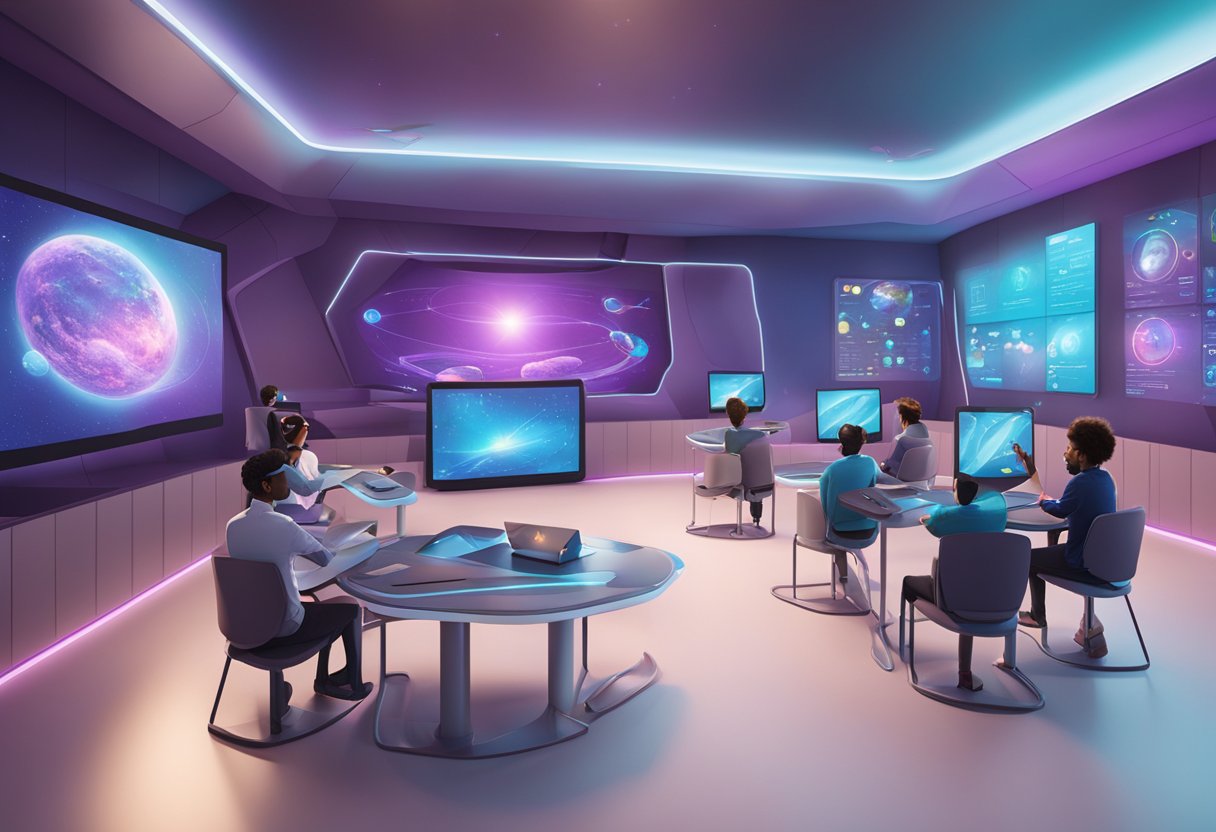Education is evolving at a pace faster than ever, and Qatar is at the heart of this transformation. By adopting AI-driven personalized learning platforms, the nation is stepping into a future where students receive tailored education that adapts to their unique learning styles, pace, and goals. This bold move not only redefines classrooms but also positions Qatar as a regional leader in educational innovation.
Why Qatar Is Turning to AI in Education
Over the past decade, Qatar has invested heavily in its education sector to align with its national vision for 2030. Traditional teaching methods, while effective in the past, often struggle to meet the diverse needs of today’s learners. Some students excel quickly, while others require more time and support.
This is where AI-driven personalized learning comes in. By using artificial intelligence, Qatar can offer adaptive education that:
- Identifies individual student strengths and weaknesses.
- Provides customized learning pathways.
- Delivers instant feedback to learners.
- Reduces teacher workload by automating repetitive tasks.
The result is a system that makes learning more efficient, engaging, and impactful for every student.
What Are AI-Driven Personalized Learning Platforms?
AI-driven personalized learning platforms are digital tools powered by artificial intelligence. They analyze student data in real time—such as quiz results, interaction patterns, and response times—to create a learning journey unique to each student.
For example:
- A student who struggles with math concepts may receive more practice exercises and simpler explanations.
- A fast learner in science could access advanced modules earlier.
- Visual learners might receive video-based lessons, while others may get text or interactive simulations.
This level of customization ensures no learner is left behind, while advanced students are constantly challenged.
Qatar’s Vision for Smarter Classrooms
Qatar’s move toward AI-driven personalized learning is not an isolated project. It is part of a larger digital transformation strategy aimed at modernizing the country’s education system. The government has already introduced smart classrooms, e-learning resources, and teacher training programs focused on technology integration.

With AI now in play, classrooms are expected to:
- Operate as hybrid environments blending online and offline learning.
- Enable teachers to become facilitators and mentors rather than just information providers.
- Create a more student-centered educational experience.
This vision reflects Qatar’s long-term goal of preparing students not only for local opportunities but also for global competitiveness.
Benefits of AI in Qatari Education
The adoption of AI-driven personalized learning brings several key benefits that could reshape Qatar’s education sector:
1. Tailored Learning Experiences
Every student has different needs, and AI ensures lessons adapt accordingly. This promotes higher engagement and reduces frustration for learners who struggle with standard one-size-fits-all approaches.
2. Real-Time Progress Tracking
Teachers and parents can track student progress instantly. AI platforms generate reports highlighting areas where the student excels or needs improvement.
3. Reduced Teacher Workload
Teachers spend countless hours grading and planning. AI tools automate these processes, giving educators more time to focus on mentoring and emotional support.
4. Enhanced Student Motivation
Students often lose interest when lessons feel irrelevant. With AI-driven customization, learning feels more personal and rewarding, keeping motivation levels high.
5. Preparation for Future Careers
By engaging with AI platforms, students also develop digital literacy and problem-solving skills—qualities essential for success in future job markets.
Challenges Qatar May Face
While the potential is exciting, the adoption of AI-driven personalized learning also comes with challenges:
- Data Privacy: Handling sensitive student data requires strong protection measures.
- Teacher Training: Educators must be trained to use AI tools effectively.
- Equity in Access: Ensuring all students, including those in remote areas, have equal access to digital platforms.
- Balancing Technology and Human Touch: Education is not just about academics but also social and emotional development, which requires human interaction.
Qatar is addressing these challenges by investing in teacher training, robust digital infrastructure, and clear policies on cybersecurity and data protection.
Success Stories and Pilot Projects
Already, several schools in Qatar are experimenting with AI-based tools. Pilot programs have shown promising results:

- Students demonstrated improved retention and understanding of complex subjects.
- Teachers reported less stress from administrative tasks.
- Parents felt more engaged due to detailed progress updates.
These early outcomes suggest that Qatar’s investment in AI will yield long-term benefits for its education system.
Global Perspective: How Qatar Stands Out
Many countries are testing AI in education, but Qatar stands out for its proactive approach. Unlike nations that rely solely on external technologies, Qatar is also encouraging local development of edtech solutions. Partnerships between universities, startups, and government agencies are creating a unique ecosystem where innovation thrives.
This not only enhances Qatar’s self-reliance but also positions it as a potential exporter of educational technology solutions across the Middle East and beyond.
The Role of Teachers in an AI-Enhanced Classroom
One common misconception is that AI will replace teachers. In reality, Qatar’s model emphasizes the opposite. AI will handle data-driven tasks, while teachers focus on what they do best—guiding, inspiring, and nurturing students.
Teachers will become facilitators who:
- Interpret AI-driven insights.
- Provide emotional and social support.
- Encourage creativity and critical thinking.
- Foster collaboration among students.
This shift could make teaching a more rewarding profession while improving student outcomes.
The Road Ahead for Qatar
As Qatar continues to expand the use of AI-driven personalized learning platforms, the next steps include:
- Scaling pilot projects to more schools nationwide.
- Investing in advanced infrastructure to support AI adoption.
- Enhancing public-private partnerships to foster innovation.
- Expanding teacher development programs.
- Ensuring inclusivity so every learner benefits, regardless of background.
By doing so, Qatar is setting the stage for an education system that not only meets present demands but also prepares future generations for challenges we cannot yet imagine.
Conclusion: A Bold Step Toward the Future
Qatar’s adoption of AI-driven personalized learning platforms marks a turning point in education for the nation and the region. By blending technology with human expertise, Qatar is creating classrooms that are smarter, more inclusive, and future-ready.
This move reflects a clear message: education must evolve to meet the needs of a rapidly changing world. With AI at its core, Qatar is not just teaching students for today—it is preparing them for tomorrow.
Also read: Kuwait Airport Achieves Top ICAO Security Rating Amid Global Standards



